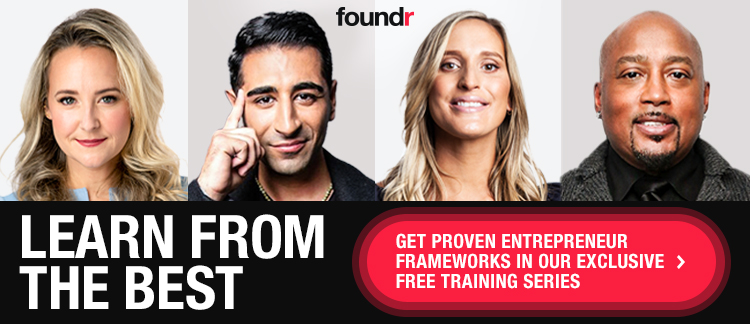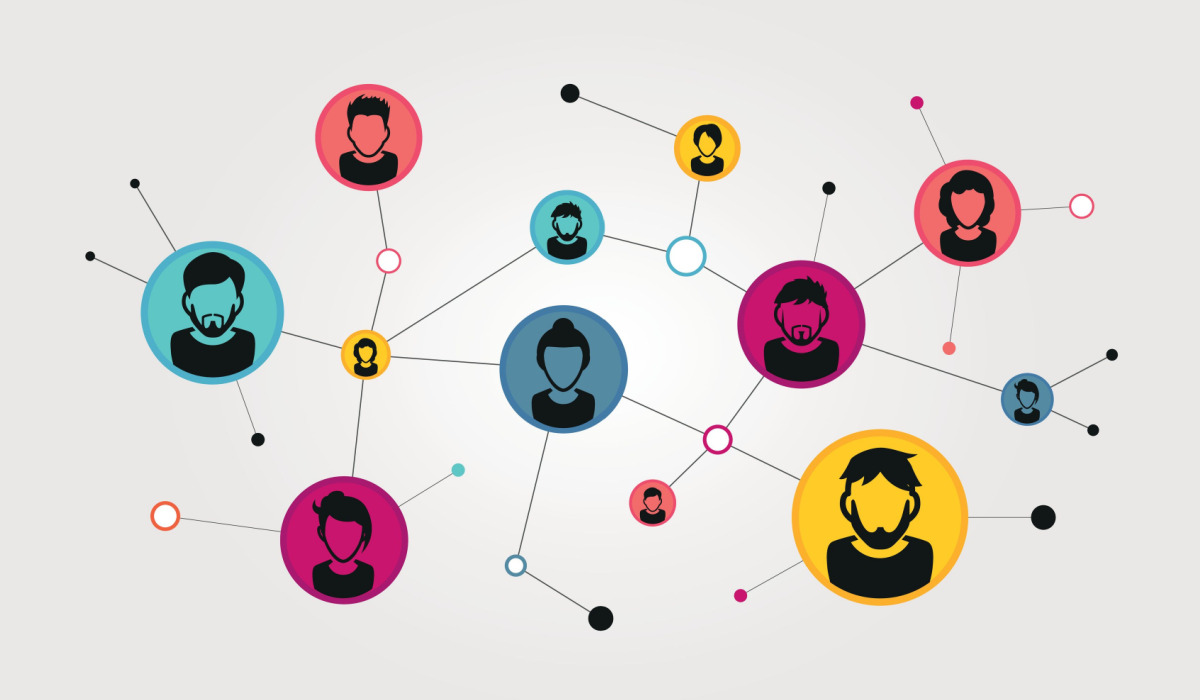My daughter peppers me with questions every day, multiple times a day. On one occasion, she stumped me, and I replied, “Hmmm. I don’t know the answer to that.” Still curious and pressing, she asked, “how can you even know what you don’t know?” I thought to myself, “she is indeed correct.” How can any of us know what we don’t know?
Many founders step into the role when our expertise comes face to face with a problem we enthusiastically solve, and we think, “I could build a business around this solution.” We forge ahead, intent on doing just that, into the unknown, not knowing what we don’t know. We quickly learn how much we don’t know, which can often be confusing and discouraging.
As an executive coach, I spent years teaching professional soft skills to team members and C-suite leadership. I’ve designed hundreds of programs that have helped thousands of people find professional success by building their soft skills, leveraging psychological best practices, and understanding human behavior.
After 20 years of honing my craft, I decided to create my second business. A business that fuses learning and development with technology, allowing us to increase our audience and our reach. You might think that starting this second business would have been a piece of cake. After all, I had a wealth of experience and knowledge at my disposal. Long story short–it wasn’t.
According to the U.S. Bureau of Labor Statistics, entrepreneurs started 843,320 companies in 2021. If business failure data is accurate, we can expect 20%, just over 150,000, of these businesses to fold within 2 years and almost half by year 5. While MBAs debate the cause of these closures, I believe they are missing an important factor.
While underfunding, poor market analysis, or miscalculated ROIs constitute a visible list of culprits, many founders throw in the towel because they lack foundational soft skills. It’s that deficiency that fatally impacts their daily business functions.
Number crunching discounts the importance of soft skills like self-awareness, communication, and a growth mindset. It wasn’t my ability to navigate Quickbooks that helped me lean into the unknown. As I moved forward, I relied on my soft skills more than my math skills.
The following foundational skills are why my business is thriving today and are what I believe founders need to develop most to face and overcome the unknowns of building their business.
#1 Self-Awareness
There’s a good reason that self-awareness is at the top of my list. If you cannot reflect on your behaviors, weathering the turmoil of starting and operating your business and developing other soft skills is going to be incredibly difficult. Self-awareness is critical to founders for 3 big reasons:
- It is the cornerstone of all skill development–you cannot work on what you do not see.
- It helps you build objectivity as you seek to understand your reactions, how others perceive you, and how you fit into situational equations.
- It allows you to identify what changes you need to make that strategically align with your business objectives.
We’ve all had experiences with business people with low self-awareness. I have a colleague who met a prospective contractor. He arrived unkempt and unapologetically late for their appointment. He tried to overwhelm her with jargon, yet she felt he was unprepared to discuss how his service would address her company’s needs.
When she told him the software product was not a good fit, she said he reacted with a barely suppressed sneer and rolled his eyes. As she walked him out, he offered no further pleasantries and left in a grumble. I can only imagine how he explained his failure to close this sale to his team leader, but I am confident that his perceptions of their interaction wildly differed from hers.
When we work to build soft skills, our self-awareness is what allows us to assess the elements of unsuccessful sales interactions like this and turn them into opportunities to reflect upon our performance and improve. We wouldn’t dismiss our role in the situation and accept that a warm lead suddenly lost interest.
We would think about what we did, how we appeared, how we prepared and engaged, and consider different approaches we could try in the future. We would evaluate our performance and make adjustments to perform better next time.
As a foundational skill, self-awareness becomes the platform for building empathy, the awareness of others, which is essential for managing relationships. When we can objectively evaluate the performance, motives, and reactions of others with the same methods we use to assess ourselves, we can better communicate with them in a way that builds understanding and furthers our vision. While we will never know precisely how they operate, we can make predictions based on how we might respond if we were in their shoes.
Practicing self-awareness and building self-knowledge will make you more forgiving, insightful, and resilient. And when you can wield that awareness in skillful relationship management, you will be a more influential leader.
#2 True Communication
Communication is an enormous subject whose practice and theory sparked debate in some of the earliest historical writing. We won’t delve deeply into the timeline of rhetoric here, but it’s a fact that from the moment the first baby who cried for food was fed, humans have been working out how to use communication of all kinds to get what they want.
You likely spend your days in a near-perpetual state of communication, hopping between meetings, emails, calls, texts, online messages, etc. It’s also very likely that you’ve experienced setbacks caused by miscommunication and misunderstanding in the form of delays, overspending, broken trust, or possibly something worse. Setbacks like these are great opportunities to reflect and build self-awareness because these are facts:
- If you can’t build understanding and effectively communicate your needs, goals, and tasks with your team, vendors, and clients, you will have difficulty succeeding.
- If you believe the onus is on the listener to understand and not on you to be understood, you are wrong.
Great communicators and great founders build understanding. They listen and adapt to ensure they understand and are understood. There is a certain amount of work that listeners need to do, but as a leader blaming others for not understanding or misunderstanding is like blaming your car for getting you lost. At the end of the day, you are the one in the driver’s seat.
Listening
Listening is possibly the most valuable skill a great founder can develop. Yes, at a basic level, listening is how we gather information. But great listening is not hearing the words; great listening is perceiving meaning. It requires attention, intuition, awareness, empathy, and nearly all your senses. This is why after a day of engaging conversation, we’re exhausted. Listening takes effort.
To truly understand, you must listen beyond meaning, hear motive, and what’s not said in words but in body language and intonation. As a leader, you do not have the luxury of communicating at a superficial level. Context and relationships shape communication, and you need to be aware of how you, your position, and those you engage with change the balance of your communications. If you learn to listen like this, you will have a much easier time orienting yourself in any situation.
Adapting
Once oriented, you can use contextual and relational touchpoints to adapt and craft your communications to be impactful and effective.
A few things to remember:
- Speak With: Generally, people prefer when you speak with them rather than at them. That prepositional difference separates collaboration from compliance.
- Understand Motivations: People have different motivations, which affect their communication styles. If you understand what motivates someone, you can craft communications that connect your ideas with their values. This is important because when people feel that their values align with a project, they feel more invested in its success.
- Style Points: You also have a communication style. You must know how your style and preferences work or don’t work with people who communicate differently (see scenario below).
If you tend to be very direct and your genial accounts manager pops into your office and opens with,
“Good morning! How was your weekend?”
Don’t break trust with her by responding,
“Hi, good. I’m kinda busy right now.”
Chances are that she’s there for a good reason, and this statement runs the risk of shutting down the conversation and could make your team member feel devalued. To adapt to her communication style and relay the same information, you could say,
“Good morning. You’ll have to excuse me, I’m about to jump on a call. Can I catch up with you later?”
If you build strong listening skills and adapt your communication to maintain strong working relationships and provide clear direction, you will have a team of collaborators. Founders need collaborators. Unlike compliant workers who generally do the minimum, collaborators are strong partners who assume more responsibility and are more productive and generous with their soft skills and talents because they feel connected by a shared purpose.
Read more: Scooter Braun Opens Up About Burnout and Discovering Big Talent
#3 Your Mindset Matters
Founders don’t fail–they try. If you agree with this statement, you might have a growth mindset. If you believe that failing makes you a failure, you might have a fixed mindset.
It’s not hard to see how mindset would make my top three list. Mindset is a powerful factor in both your success and defeat. Mindsets are shortcuts our brains create that help us simplify our thinking in a complex world. We develop them through experience, and they shape our attitudes. Our mindsets affect our worldviews. When we believe things don’t change, we won’t believe we can enact change.
You might be reading this thinking, “A founder couldn’t possibly have a fixed mindset, otherwise, they wouldn’t have tried.” But mindsets apply to thinking across many dimensions. A person with a growth mindset about one topic can have a fixed mindset about other issues. For example, someone who is resilient and persists in the face of setbacks may also feel threatened by the success of others.
So, while they may be very forgiving of their mistakes and use their foils as fuel, if their peers work with big-name clients and they do not, they may still feel unsuccessful. Fostering a growth mindset around definitions of success might help this person see that someone else’s success doesn’t diminish their own success. Rather than feeling disheartened, they could find inspiration in the successes of their peers.
You can change your mindset by learning to identify aspects of a growth mindset and build awareness of your reactions. For instance, some founders will feel defensive when offered feedback. This is true even of founders who understand the value of constructive criticism. If you find receiving feedback difficult, you can use this self-knowledge as a tool for change. When the next opportunity to practice accepting feedback comes along, you can make a conscious decision to be open to the viewpoint of others.
Developing a growth mindset is vital for founders because they need to believe they can succeed. They need to embrace challenges, believe in themselves, trust in others, and be able to reframe situations in a way that encourages them to continue moving forward. Having a growth mindset isn’t about being unrelentingly positive, and it isn’t about developing a thick skin. Developing a growth mindset is adopting a belief that positive outcomes are possible with effort despite setbacks.
So, how can you know what you don’t know?
The short answer is that you can’t, but you equip yourself to learn. Self-awareness will give you the perspective you need to lead yourself and others toward actualizing your vision. Strong communication skills will help you build understanding that is encouraging and actionable.
And with the right mindset, you will know that success is possible, setbacks are surmountable, and that learning is about failing forward, reflecting, and failing better the next time. I am confident that you can harness the power of these three foundational soft skills through practice. Doing so will lay the foundation for lifelong personal and professional development, and you will become an unstoppable founder.


















